جيرترود بيل راسمة حدود العراق الحديث ترقد منسية في مقبرة ببغداد!!
كنيسة تدفع لحارس 3 دولارات شهريا للاعتناء بقبر المغامرة والكاتبة وعالمة اللغويات البريطانية!!

جيرترود بيل ( 1285 - 1345ه / 1868 - 1926 م ) باحثة ومستكشفة بريطانية مشهورة عملت في العراق مستشارة للمندوب السامي البريطاني بيرسي كوكس في العشرينيات من القرن الماضي اسمها الكامل جيرترود بيل جاءت إلى العراق عام 1914 ولعبت دورا بالغ الأهمية في ترتيب أوضاعه بعد الحرب العالمية الأولى، فقد كانت بسعة علاقاتها ومعارفها وخبراتها بالعراق أهم عون للمندوب السامي البريطاني في هندسة مستقبل العراق, يعرفعا العراقيون القدماء بلقب الخاتون, يعتبرها بعض المحدثين بأنها جاسوسة وهي في الواقع موظفة بريطانية خدمت بلدها بريطانيا بكل جد وإخلاص.
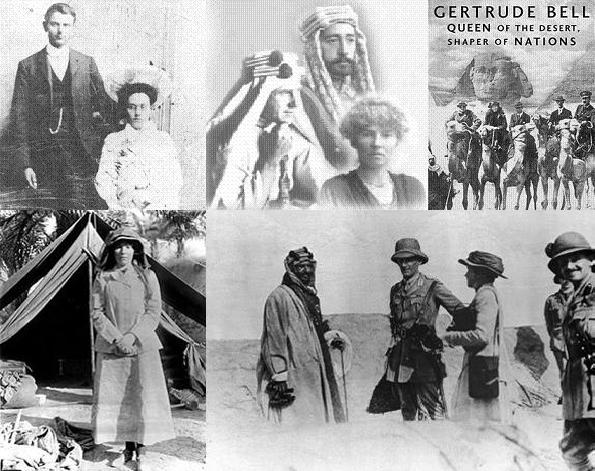
تفتح ابواب المقبرة ويقود حارسها الزائر عبر صفوف من شواهد القبور المكسورة. ويشير علي منصور الى شاهد قبر مصنوع من الحجر الرملي قائلا:"ها هي ذي...اعتني بها لكن لا احد يزورها!!!".
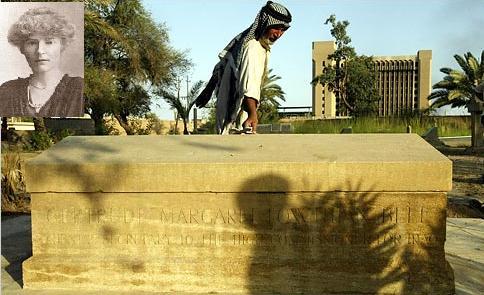
وكان علي يتحدث عن جيرترود بيل، وهي مغامرة وكاتبة وعالمة لغويات بريطانية، واحدى اكثر النساء نفوذا خلال فترة العشرينات، حيث كانت مستشارة صانعي الامبراطوريات ومقربة من الملوك.
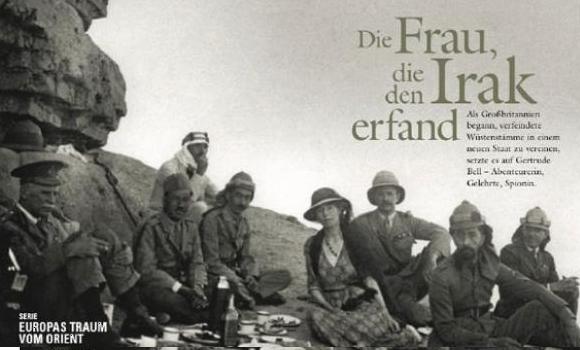
مع الملك فيصل الأول وعدد من مرافقي الطرفين
وينسب الى بيل، التي كانت مستشارة شرقية للحكومات البريطانية، ترسيم حدود دولة العراق الحديثة من بين انقاض الامبراطورية العثمانية في نهاية الحرب العالمية الاولى.
والان ترقد المرأة التي لقبت بملكة العراق، منسية في احدى مقابر بغداد.
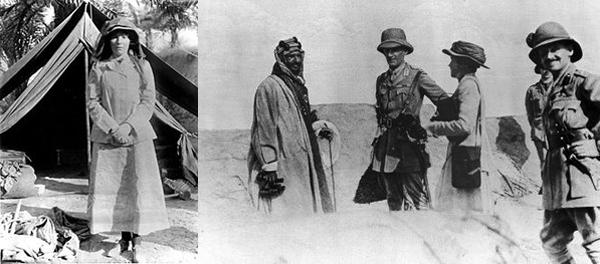
ووضعت بيل والمستعمرون حدود العراق بدمج اقاليم الموصل وبغداد والبصرة، التي كانت تحت السيطرة العثمانية في مسعى لتأمين المصالح البريطانية، من دون وضع اعتبار يذكر للحدود القبلية والعرقية.
وكتبت بيل التي كانت متخصصة في اللغتين العربية والفارسية لوالدها عام 1921 قائلة:
«امضيت نهارا جيدا في المكتب، وانا اضع حدود الصحراء الغربية من العراق».
وتمخض ذلك عن دولة مركزية تعيش فيها ثلاثة تجمعات لها اهداف ومبادئ ومعتقدات مختلفة، هم الاكراد في منطقة الشمال الجبلية والشيعة في الجنوب والعرب السنة في بغداد وباقي وسط البلاد.
وفي عام 1958 تمكنت مجموعة من الضباط الوطنيين من الاطاحة بالنظام الملكي، الذي ساعدت بيل على ارسائه، من خلال استفتاء مزيف في عام 1921، حظي فيه النظام بالموافقة بنسبة 96 في المائة.
وكانت بيل التي تتحدر من عائلة ارستقراطية، تعيش في بغداد التي كانت اكثر رقيا، مقارنة بالعاصمة العراقية الان!!!!، التي تعد ابرز مظاهرها اكياس الرمال والمركبات المدرعة وانقاض مبان حكومية من عهد صدام.
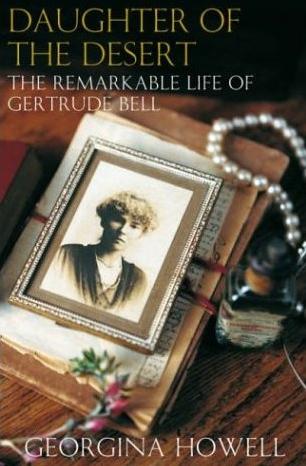
وكانت بيل ترتدي فساتين قطنية طويلة وقبعات مزينة بالريش، وهي تمتطي الخيول بمحاذاة ضفاف نهر دجلة. وفي رسائلها كانت بيل تصف بغداد بأن من اهم مظاهرها حفلات الشاي وسباقات الزوارق والسباحة ومآدب الغداء على شرفات المباني البريطانية.
لكن مع انتشار الثورة ولجوء بريطانيا الى القنابل والغازات السامة لقمع المعارضين لوجودها اختفت بيل من الحياة العامة. وقالت في احدى المرات:
«قللنا من شأن حقيقة ان هذا البلد مؤلف من حشود قبلية لا يمكن احتواؤها في ظل اي نظام».

قبل أكثر من سنة كتبت هذه المجلة الألمانية تقريرا مطولا عن هذه السيدة فحقا كانت موفقة و قد ذكرت الكثير عنها والمهم شاهدت عدد من الصور النادرة..
وقبل خمسة اعوام من وفاتها عن عمر يناهز 57 عاما بسبب جرعة زائدة من الحبوب المنومة عام 1926، كتبت بيل قائلة:
«يمكنكم ان تعتمدوا على شيء واحد.. لن اشارك ابدا في صنع ملوك مرة أخرى. انه ضغط اكبر من اللازم».

وعندما دفنت خرج الالاف الى الشوارع ليلقوا نظرة على نعشها خلال رحلته الاخيرة الى المقبرة البريطانية في حي الباب الشرقي ببغداد.
ويقول الحارس منصور، الذي يعيش مع زوجته في كوخ داخل المقبرة، ان كنيسة محلية تدفع له نحو ثلاثة دولارات في الشهر لازالة الاعشاب الضارة عن قبر بيل.
وجرى تنظيف القبر واعادة ترميمه من قبل احد فاعلي الخير العام الماضي، وقبل الحرب كان الصحافيون الاجانب يمرون لزيارته. لكن الان يقول منصور ان الكل خائف من تعرضه للقتل أو الخطف اذا حاول الدخول الى تلك المنطقة!!!.
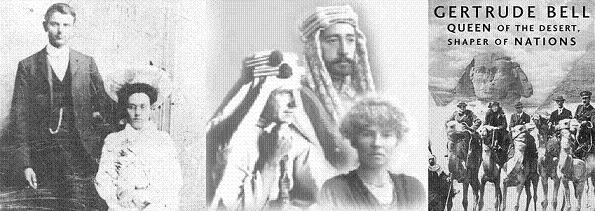
اقترحت هي و توماس إدوارد لورنس قيام مجلس تأسيسي للدولة العراقية بهدف تنصيب الأمير فيصل بن الحسين ملك على العراق, ولها الفضل في تأسيس المتحف العراقي. (فالعراق مدين لها بتأسيس متحفه النفيس الذي ساعد المرينز في نهبه على يد السراق والغوغائيين دون أن يحاولوا حمايته والحفاظ على كنوزه).
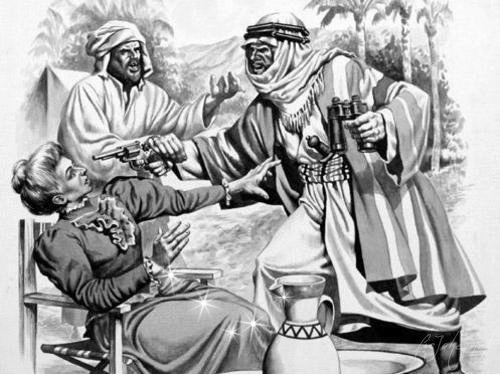
مرة هاجمها أحد اللصوص ولولا حارسها الشخصي لقتلها.. مع ذلك أنتزع بعض مقتيناتها!!
كانت ذات شخصية مؤثرة شاركت مجالس سيدات مجتمع ذلك الوقت وكانت تنتقد أسلوب التحدث الجماعي للنسوة, كما كانت معروفة على المستوى الشعبي وهناك قصة لها مع أحد قطاع الطرق (الشقاوات)،(ابن عبدكه) قاطع الطريق، الذي اشتهر في مناطق شمال بغداد، عند بداية القرن العشرين، وحدث ان استولى على القطار الصاعد من بغداد، والتقى فيه ب "مس بيل" المسؤولة الانكليزيه المعروفه، التي كانت تستقل القطار، وحين عرفها اكرمها، وعاملها بحفاوه، فتوسطت له، واسقطت عنه الملاحقا ت القانونيه، ووظفته في الدوله.
وقد زارت منطقة حائل في السعودية أوردت مشاهداتها عنها في مذكراتها.

Gertrude Bell
While British archaeologist Gertrude Bell played a significant role in the creation of modern Iraq, is this enough to justify the current level of interest in her
Georgina Howell, Daughter of the Desert: the Remarkable Life of Gertrude Bell. London: Macmillan, 2006, pp518
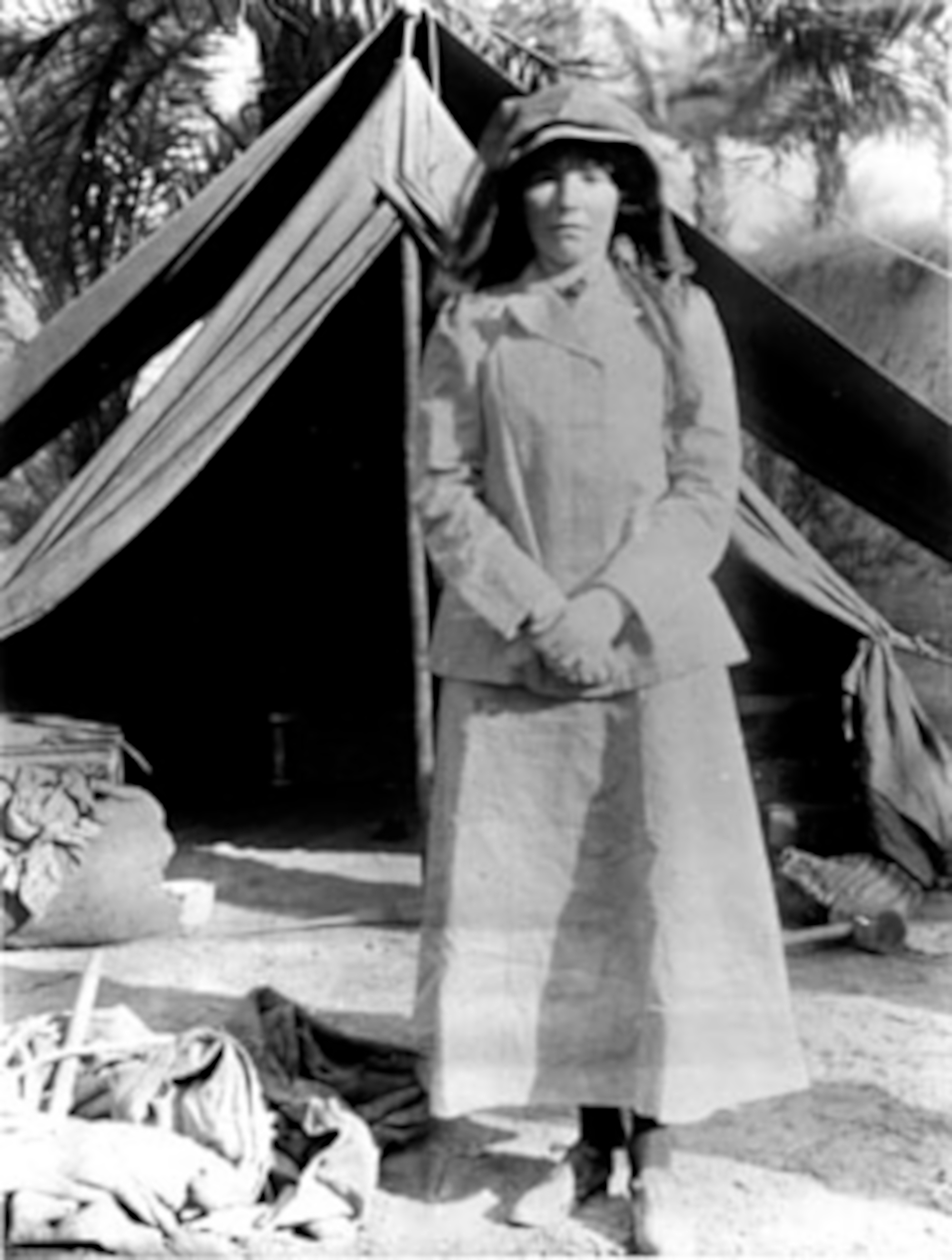
Recent years have seen an explosion of interest in Gertrude Bell, the British archaeologist, civil servant and, apparently, spy, who was present at the founding of the modern Iraqi state in the early 1920s and who set up the Iraqi National Museum in Baghdad, serving as its first director.
First there was Janet Wallach's biography of Bell , Desert Queen, published in 1997, which promised a reassessment of Bell's contribution both to the constitution of the present state system in the Middle East after the First World War and particularly to the formation of modern Iraq. This was followed last year by another biography of Bell, A Quest in the Middle East by Liora Lukitz, which focused on Bell's activities in Mesopotamia after 1918. Now there is yet another biography of Bell , Daughter of the Desert by Georgina Howell, which also promises significant material both on Bell and on the events in which she was caught up.
These three books are from different publishers, and perhaps the latter two are the result of a kind of bidding war, their authors supposing that, with world attention currently focused on Iraq, the circumstances of the modern state's foundation might also attract the attention of people not ordinarily interested in Middle Eastern affairs, particularly if spiced up with a tale of a woman who "transcended the restrictions of her class and age," as Bell's most recent biographer puts it.
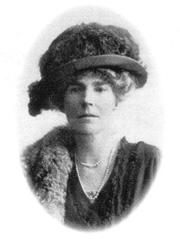
However, the arrival of this third volume may also mark the high-water mark of interest in Bell. While she undoubtedly played a role in the foundation of the modern Iraqi state, notably through her work under Sir Percy Cox and Sir Arnold Wilson, in charge of the British forces in the country after 1918, and through her apparently close relationship with Faisal.
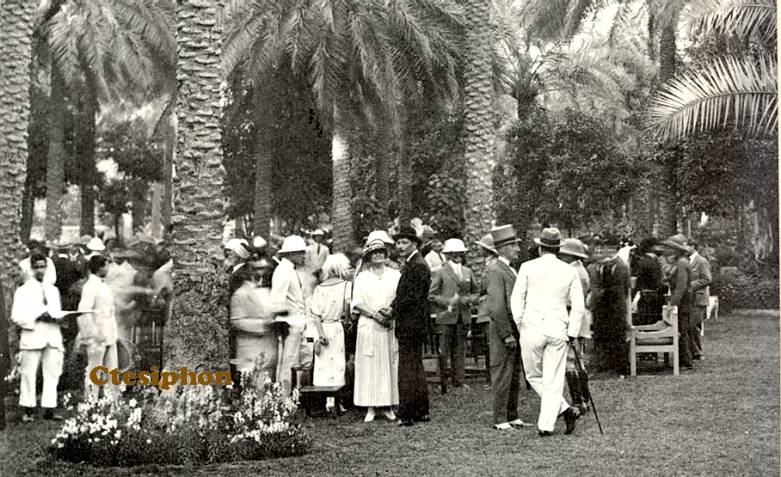
the Hashemite ruler she helped place on the throne, it is not obvious that she played the crucial role that some of her bolder biographers ascribe to her. While this new biography is a useful reminder of Bell's remarkable qualities, not least of physical endurance, it tends to confirm this impression.
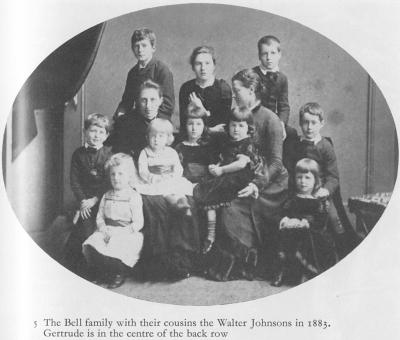
Gertrude Bell - daughter of Sir Hugh Bell
Born in 1868 into a family of English industrialists, Bell first drew attention for what seems to have been genuine academic brilliance. One of the first women to study at Oxford, the university having at the time only recently decided to admit female students, Bell gained a first-class degree in history, the first woman to do so.

Howell imagines the young Gertrude Bell as having been a bit like Lucy Honeychurch in EM Forster's novel Room with a View, "intolerant, seeing herself as fascinatingly different, and full of elevated ideals." If so, there were also important differences between Forster's character and Bell in that the latter was not only staggeringly rich -- her biographer insists that the Bells were the "sixth-richest family in England", which seems exaggerated -- but she was also very well connected, mixing easily with the kind of aristocratic figures that then ran the British diplomatic service
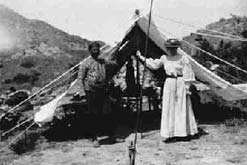
A first-class degree in history for any other young woman would not necessarily have been worth much, since women were barred from the professions and a scholarly career, in the ordinary way, was out of the question. For Bell, however, Oxford seems to have been a stopping-off point before a round of embassy visits abroad, first to Romania, where a relation was ambassador, then to Tehran, where another relation held the same position, and then, in 1903, to India for the durbar staged by the then viceroy, Lord Curzon, to mark the accession of Edward VII.

These visits seem to have whetted Bell's appetite for travel, as well as for all things oriental. While in Tehran, Bell began to learn Persian and to experiment with her translations of Hafez, later published as The Divan of Hafez in 1897, and her academic background, her money and her interest in experiencing parts of life then closed to women seem to have conspired to push her towards ever greater physical and intellectual challenges.
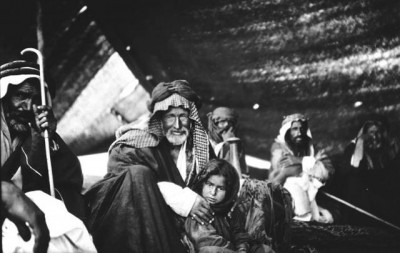
Howell, for example, has a lengthy chapter on Bell's career as a mountain- climber in the Alps in the early 1900s, where a particularly difficult peak, the Gertrudspitze, is named after her. In her expeditions in Syria, Iraq and Anatolia, carried out during the first decade of the century and recorded in her books The Desert and the Sown (1907) and Amurath to Amurath (1911), Bell visited archaeological sites and worked on their excavation, her own work on the Abbasid fortress at Ukhaidir in Iraq being published in 1914.
From left: Winston Churchill, Gertrude Bell, T.E. Lawrence
She is believed to have been among the first foreign travelers to visit Ha'il, today in Saudi Arabia, which she did in 1914 as part of a British- government attempt to uncover local "tribal affiliations and enmities" that could be exploited in spreading British influence.

Owing to her knowledge of the region she was recruited to the Arab Bureau in Cairo, where one of her colleagues was TE Lawrence, and following this she was sent to British military headquarters in Basra, and later to Baghdad, where her position of "oriental secretary" involved helping to set up the new Iraqi state that replaced what had previously been Ottoman provinces after the First World War. Her 1920 report, Review of the Civil Administration of Mesopotamia, is considered an important contribution to the development of the new state structures.

Howell recounts all this by reference to Bell's own letters and journals, edited by her stepmother in 1927 and by Elisabeth Burgoyne in 1961. Where she is on less sure ground is in her account of Bell's relationships with men, or, indeed, with other women, such relationships nevertheless being flagged as an essential part of Bell's story.

An early liaison with an aristocratic second son, or rather grandson, met in Tehran, was called off at family insistence, and later there was a long, tortured and rather inconclusive relationship with Dick Doughty-Wylie, a married man.
Though Howell does not say so, one can imagine that Bell was under considerable family pressure to marry. The fact that she did not, choosing a sometimes rather difficult life in the Middle East instead, is never really explained, Howell contenting herself with the thought that Bell was "frustrated" by her conventional life in England.

Yet, this does not fit well with the facts, and nothing Howell has to say about Bell's character in the early parts of her book really prepares one for the revelation, in chapter four, that Bell not only joined the Anti-Suffrage League aimed at denying women's right to vote, but also became an organizer of it. In this part of the book, Bell emerges as something of a glutton for punishment.
With Faisal securely on the throne of Iraq, and Britain's relationship with the new country, "mandated" to it by the League of Nations, settled by treaty in 1924, Bell turned to her new role of establishing professional standards of archaeology in the country and of setting up the Iraqi museum. Unfortunately, Howell gives just a page or two to these developments in a book of over 500 pages.

GERTRUDE BELL (1868–1926) was as complicated as the country she helped to found. The granddaughter of a wealthy British ironmonger.
even though the antiquities law that Bell drafted helped to ensure that material excavated in the country would stay in it, feeding the collection of the new Iraqi museum. This is disappointing, since the work Bell did in these years to safeguard the country's heritage may have been her most lasting contribution to the new Iraq.
However, doubts about Howell's account are likely to have set in long before the reader reaches this part of the book. For one thing, there is the strange use of sources, Howell giving references for works by Bell but giving few if any other references such that the reader does not know whether Howell is simply making up portions of her version of Bell's life.

whether she is engaged in embroidering Bell's diaries, or whether there are other unlisted sources that bear out her assertions. For another, there is Howell's sometimes startling naiveté, her statement, in the preface to her book, that "Britain has little to be ashamed of in the establishment of Iraq, in which the promise of Arab independence was finally honoured," not inspiring confidence and being contradicted by much of the evidence she herself cites in the rest of her book.

Sgt. Reeves. A.F.M. Miss Gertrude Bell
Finally, there is the strange matter of Bell's "suicide". Howell thinks it likely that Bell, exhausted by her exertions in Baghdad, committed suicide in July 1926, though this was covered up at the time.

This does not fit well with the version of Bell's character presented in the book up until this point, and it seems to raise questions about how Bell herself may have seen her life. Howell seems unsure what to make of it.

While Howell has written an engaging and readable account of Bell's life, it is hard to feel that she has had the final word. However, rather than reaching for yet another biography of Gertrude Bell, the reader looking for more than this one can offer might be better off reading a good account of the history of Iraq, supplemented by Bell's published letters and diaries.




No comments:
Post a Comment
Note: Only a member of this blog may post a comment.